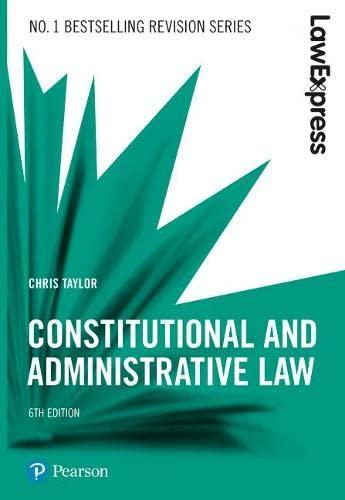Question
TORTS AND CONTRACTS This case has it all: Crocker v. Sundance Northwest Resorts Ltd., 1988 CanLII 45 (SCC), [1988] 1 SCR 1186 https://www.canlii.org/en/ca/scc/doc/1988/1988canlii45/1988canlii45.html?autocompleteStr=Crocker&autocompletePos=1 At 40paragraphs,
TORTS AND CONTRACTS
This case has it all:
Crocker v. Sundance Northwest Resorts Ltd., 1988 CanLII 45 (SCC), [1988] 1 SCR 1186
https://www.canlii.org/en/ca/scc/doc/1988/1988canlii45/1988canlii45.html?autocompleteStr=Crocker&autocompletePos=1
At 40paragraphs, it's also as short as it is important.
Remember also that it's possible for reasonable people to reasonably disagree on the outcome here: the trial judge found in favour of Crocker. The Ontario Court of Appeal, with one judge in dissent, found in favour of the resort.
At this level (the Supreme Court of Canada), Crocker is the Appellant/Plaintiff and Sundance Resorts is the Respondent/Defendant. Crocker "wins".
Remember also that a Waiver or Disclaimer is a form of contract and therefore requires, for our purposes here, that the elements of contract be satisfied
- Read the facts of the case (paragraphs 1 - 9). What facts jump out at you as being problematic right away and why?
2. At paragraph 30, Justice Wilson outlines Sundance's position that tubing is an inherently dangerous activity. Of course it is. As such, why can it not be said that Crocker voluntarily assumed the risk? Read paragraphs 33 - 35
Step by Step Solution
There are 3 Steps involved in it
Step: 1

Get Instant Access to Expert-Tailored Solutions
See step-by-step solutions with expert insights and AI powered tools for academic success
Step: 2

Step: 3

Ace Your Homework with AI
Get the answers you need in no time with our AI-driven, step-by-step assistance
Get Started


